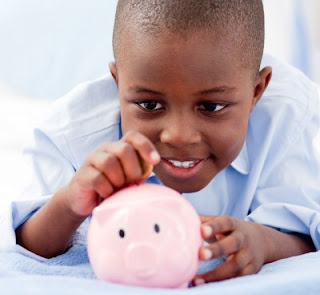The world is filled with people who become angry, toxic and vengeful when something bad happens to them (lose their job, money or a loved one, become divorced, etc.). They become fixated on blaming others for their setback and strike out to hurt others to get revenge. It can then take them an enormous amount of time to recover and get back on their feet.
Resilient people however, recover quickly. They are able to heal emotionally faster and then become focused on what was their own part in the problem, how THEY can fix the problem and what THEY can do going forward to minimize the chances that this problem will reoccur. Resilient people are less likely to hurt others or to find blame outside of themselves.
I believe that the majority of effective parents want to raise resilient children who will grow up to become resilient adults. If you would like to join this group of parents, this article offers some suggestions on what your specific tasks are in raising a resilient child, even if you, yourself, are not as resilient as you’d like to be. It may happen however, that through your efforts to implement what I’ve written here, you too may develop your own resiliency as a result of your work with your own children.
First, allow them to experience the feeling that “They can actually do things.” It’s hard as a parent to stand back and allow our children to do things that either don’t make sense to us or things that we know our children will struggle with. I’m not talking about anything that would endanger our children’s safety and well-being because it is definitely our job to do whatever it takes to keep them safe. It’s all the other things they want to try that may drive us to say something or discourage them from doing.
My son wanted to dye his hair green when he was about 11 years of age. I said no because of the cost and lasting effect of the dye, but he came back with the desire to get green gel to put in his hair and get it to stand on end. I reconsidered his request and let him raise the money to buy the gel even though I thought it was ridiculous and a waste of money. He used it a total of three times and never touched it again. When our child can try things out and make their own assessment, it increases their resiliency.
Avoid criticizing mistakes or gushing over their successes, big or small. Doing either of these things robs them of developing a true sense of feeling confident about their own capabilities and skills. When your child has an experience that is positive or negative, coach him to gain the most from the experience by asking him open ended questions such as, “How did that make you feel?” or “Why do you think that happened?” or “What will you do now?” or “Why do you think that person did/said that to you?” The answers that come from inside of him are likely to carry more weight than your parental opinion. And if he does ask you what you think, you can respond, but then turn it right back over to him by asking what he thinks.
Create opportunities to integrate your child with others; such as teams, church groups, associations and play dates with other children. Resilient children develop a connection and the sense that they are not alone. They learn to reach out to others for help or to assist those in need. It is up to us to teach them that the world is a community and we are all capable of seeking or offering help. It also helps them develop empathy and a caring nature toward others. Lead your family in activities that serve others, such as volunteering at a soup kitchen or food pantry. Serve or deliver Thanksgiving or Christmas meals to those who are less fortunate. The example you set will remain with your child forever.
Teach your child to take a stand respectfully for others or for causes. Help shape the character of your child by providing a good role model for your child to learn from. Show up with your child at rallies, school committee meetings, or benefit events such as walk-a-thons or fund raisers. Talk at family dinners and meetings about the issues that you stand for to set an example to inspire your children to also take their own stand. Avoid behaviors that promote deceitfulness. If your child answers the phone and announces that it is grandma and you really don’t want to talk to her, avoid teaching your child to lie by telling him to tell her that you’re not home.
Help your child adapt to the sensation of delayed gratification by learning that some things are earned and not awarded. Use examples in your own life to illustrate the hard work you expended to attain certificates, awards or accomplishments. Incorporate a budget plan in which your child earns and save money to buy the things he wants, rather than just going out and buying it all for him. Avoid reacting to his claims that he needs something because everyone else has it.
Making everything fair or “all better” when your child doesn’t get what she had hoped for robs her of the negative feelings required for developing coping skills. Resist the urge to run out and buy that medallion or trophy to lift your child’s spirits if she didn’t win the race or the spelling bee. The experience of disappointment can lead to self-encouragement and self-control. Uncomfortable situations for our children cause us great pain and discomfort, but trying to take that away only robs them of having that difficult experience required for healing or adaptability.





Comments
Post a Comment